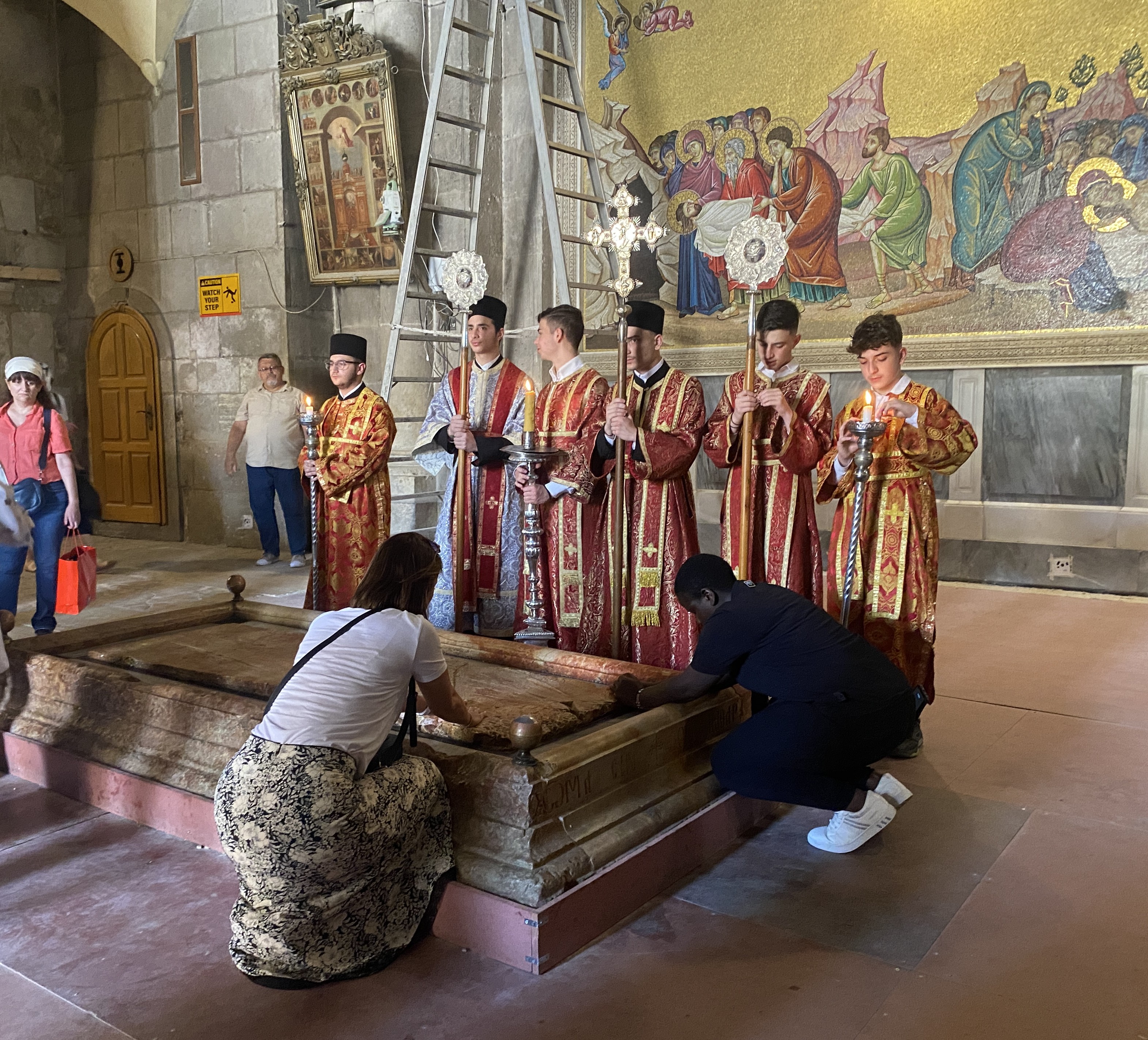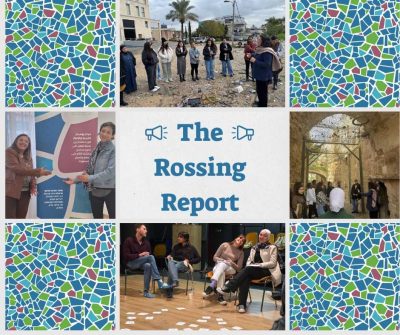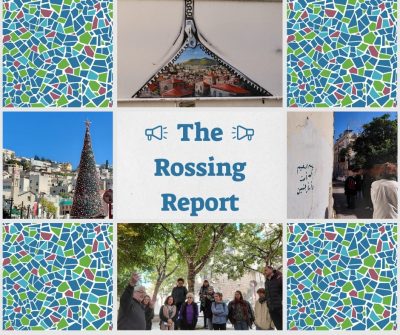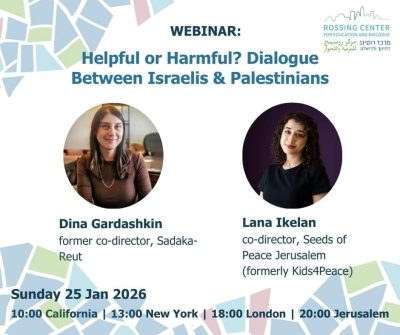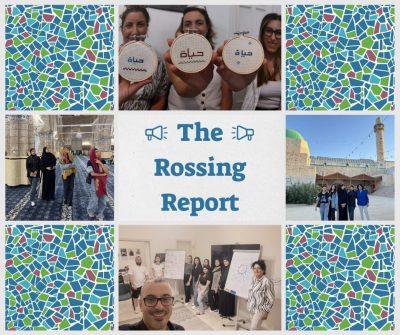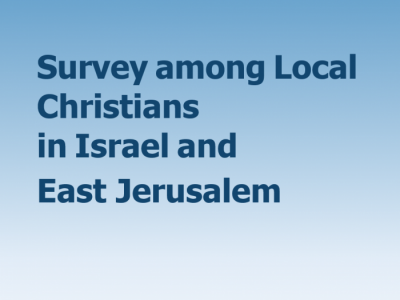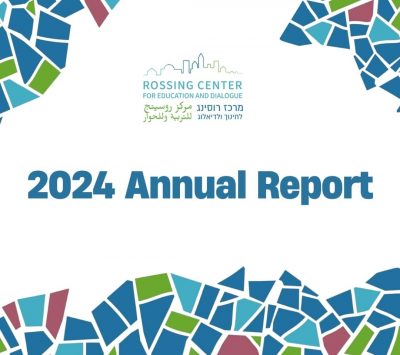This survey, conducted among Palestinian/Arab Christians in Israel and East Jerusalem, provides insights into their perceptions and attitudes regarding freedom of religion, Israeli Jewish society, state authorities, the role of the churches, emigration, and identity.
It was conducted in cooperation with the research institute “Statnet” in December 2024 and included a sample of 300 respondents, with a possible error rate ranging between ±5.6%. The sample was randomly selected taking into account the geographical distribution of the target group (Haifa, East Jerusalem, Galilee, and Central Israel), in addition to distribution by age group, gender, and religious denomination.
The survey consisted of 29 questions in Arabic, conducted through telephone interviews. The questions covered the following key areas of interest:
Religious Freedom
A majority (58.5%) of respondents reported feeling comfortable wearing visible religious symbols like a cross in places that are mixed or predominantly Israeli-Jewish, while 20.5% feel uncomfortable. Notably, East Jerusalem stands out as an area of relatively high discomfort (42%).
The vast majority (88.3%) reported no experiences of harassment by Israeli Jewish citizens (such as verbal abuse, spitting, and physical assault) due to their Christian identity. However, in Central Israel and East Jerusalem, harassment is reportedly more prevalent, with 20% reporting such experiences.
Perceptions by the Israeli Jewish Society
Overall, more than half (53%) of respondents interact daily with Israeli Jews, while a quarter rarely or never do (25%). There are significant local differences: in Central Israel, 87% of respondents reported daily interactions, whereas in East Jerusalem, 37% rarely or never interact. Gender is also a factor, with 78% of men interacting daily with Israeli Jews, compared with only 38% of women.
Perceptions of Israeli Jewish acceptance of Palestinian/Arab Christians are mixed – 30.8% of Christians feel that Israeli Jews accept Palestinian/Arab Christians as part of Israeli society, while 34% do not. The feeling of lack of acceptance is significantly higher among respondents in the 18–29 age range (56%).
Similarly, when asked whether Israeli Jews treat Palestinian/Arab Christians better than Palestinian/Arab Muslims, responses were nearly even (35.6% agreed, 34.7% disagreed).
Only 21% of respondents feel that Israeli Jews are fearful or distrustful of Palestinian/Arab Christians whereas half of the respondents (47%) disagreed. Only 24% agree that Israeli Jews are open to learning about and engaging with Palestinian/Arab Christian heritage – as opposed to 45% who disagree.
Discrimination and State Relations
45.7% of respondents feel that they receive fair services from the municipal authorities, whereas 39% disagreed.
Perceptions of discrimination are divided. 36% of respondents believe their identity as a Palestinian/Arab Christian impacts their access to job opportunities for advancement within state or state-affiliated institutions, while 41% disagree.
The Nation-State Law is viewed negatively by most respondents – 64.8% think it confirms Christians as second-class citizens, while only 16% disagree. 51% of respondents feel that the Nation State Law did have an impact on the reality of Palestinian/Arab Christians in Israel and East Jerusalem whereas 24% felt it had no impact.
Asked if they would agree to their children doing national service in Israel, 37% of respondents would agree whilst 48% would not.
Opposition to army service is stronger, with 71% of respondents saying they would not agree for their children to serve in the Israeli army – whilst 18% would agree.
Church Institutions
Participation in church activities (e.g., prayers, community events, volunteer opportunities) is relatively high, with 33% regularly involved, 52% occasionally involved, and only 14% never participating. Among young respondents (ages 18-29), regular participation is higher (40%).
52% believe churches meet their needs for spiritual guidance and support in their personal lives, while 46% disagreed, meanwhile only 26% think church institutions adequately address the needs and challenges of the Palestinian/Arab Christian community while 46% disagree and 24% are neutral. Dissatisfaction with church institutions’ support of the communities is particularly pronounced in Haifa (58%).
Emigration
A significant portion (36%) of respondents are considering emigration. This is less common in East Jerusalem (16%) but higher in Haifa (48%).
The most chosen factors influencing their decision are security reasons (44%) and the socio-political situation (33%). In East Jerusalem, socio-political concerns dominate (81%), while security is a lesser factor (19%). Similarly, in Central Israel, socio-political concerns (45%) outweigh security (27%).
Family ties (52%) and religious connection to the land (24%) are key factors in the commitment to stay. In East Jerusalem, 39% of respondents cited a religious connection to the land, while 37% emphasized community ties. In Central Israel, the reasons to stay vary, but family ties seem less significant than in the other areas (30%), while a significant portion (24%) also cited the challenges of starting over in another country as a reason to stay.
Respondents identified protecting land and church properties (26%), providing housing (24%), and offering job opportunities (22%) as the most effective action churches can take to prevent emigration among Palestinian Christians.
Identity
Asked to choose which of the different identities listed most applied to them, the respondents replied as follows:
| Arab Christian | Israeli Christian | Palestinian Christian | Arab | Palestinian | Christian | Identity connected to the local community / town / city |
| 34% | 23% | 13% | 11% | 9% | 7% | 4% |
Christian Denomination
| Greek Orthodox | Greek Catholic | Latin Catholic | Maronite | Protestant | Armenian Orthodox | Syriac Christian | No affiliation |
| 38% | 35% | 20% | 2% | 2% | 1% | 0% | 1% |

